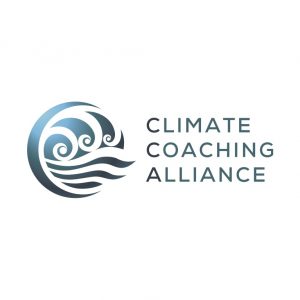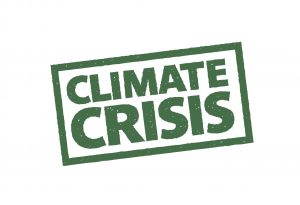Climate coaching alliance 24-hour marathon conversation, 1 October 2020
From Auckland to Hawaii with love v2: Climate Coaching Alliance co-founders Alison Whybrow, Eve Turner and Josie McLean report on the lead-up to the recent CCA 24-hour marathon conversation and the event itself, with attendees from around 90 countries
Having the Climate Coaching Alliance’s (CCA) first 24-hour marathon conversation as part of Coaching at Work’s Climate Coaching Action Day on 5 March 2020 was a real adventure.
It was also a huge, logistical and personal challenge for each of us. So for good measure we thought we’d do a second one just six months later, on 1 October – bigger, bolder and even better! Step forward our wonderful CCA members who took centre stage and pulled it off.
But let’s wind back to late July 2019. Zoe Cohen, Linda Aspey and Alison Whybrow published an open letter to coaches, coaching psychologists, professional bodies and educators, calling for action to address the ecological and biodiversity crisis: https://bit.ly/35qdehe
They pointed out the vital role our profession could play as we face the sixth mass extinction of species and called for all of us, everywhere, to do something. Among the action they called for was a network run along the same lines and principles as the Global Supervisors’ Network that Eve set up in 2016, and still runs today.
Now we move forward to autumn 2019. Alison was actively engaged in work in this field in the UK and knew Eve, and Eve knew of Josie’s interest from meeting her many times in Adelaide, south Australia, where Eve has family. Eve had been bowled over by Josie’s huge commitment to this area over many years, since meeting Sir John Whitmore in Sydney in 2004.
The three of us had a conversation, and the CCA was born. Thinking big, we boldly invited a lot of influential figures in the profession to open meetings in December 2019 to discuss the CCA. From the start, we’ve been grateful for the support, not just of individuals, but coaching and training bodies globally, and of course, Coaching at Work! The CCA is full of amazing people and growing relationships.
In recent months, five coaching bodies have themselves come up with a global positioning statement on climate change (May 2020) and have since been joined by another four bodies, (October 2020) uniquely bringing together such a wide range of coaching and coaching psychology bodies: AC, APAC, APECS, AoCS, COMENSA, EMCC, IAC, ICF and ISCP, to commit to work together and play their part in addressing the climate emergency: https://bit.ly/35oc4CW
This shift, in a little over a year, was unimaginable before we started. Thirteenth-century poet, Jalal ad-Din Muhammad Rumi’s quote: “As you start to walk on the way, the way appears”, shared by Rashmi Shetty allowed us to trust in the unfolding. It seems the CCA community is influencing the field – and the field wants to be influenced.
Our question as we considered running a second 24-hour conversation were: How do we get out of the way of this and unleash the potential? For October, a social media professor, Stephan Dahl, orchestrated our 24-hour campaign, an eco-activist and B&B owner in Scotland, Helen Strong, oversaw our website, and a group of members, led by Gosia Henderson, took on the task of ensuring we would have two local hosts for each of the 24 hours in our marathon, including our first hour in another language, Spanish. Another member, Jaime Blakeley-Glover, oversaw follow-on events that are still taking place.
By the time 1 October arrived, emboldened and awake as a result of the Covid-19 pandemic, perhaps, the coaching and climate change conversation had moved on. The learning was crisscrossing the globe and the sense of community enabled a new awareness and awakening.
The themes show how far we can travel in a short time in the right conditions. Holding the current and future earth system without judgement and with curiosity, there was a sense we can tailor many of our tools to open the landscape of enquiry for ourselves and our clients. We’re not climate scientists and we don’t need to be. Yet, we can bring the wider environment into the frame with compassion and skill in so many ways, because everything is interconnected.
A journey to greater ‘eco’ consciousness starts with each of us. Through addressing our own inner landscape, and coming into integrity with our own purpose and values, we’re better able to co-create with clients. There’s nothing we cannot do if we connect with the force of our planet.
For those hosting and participating in the 24-hour conversation from indigenous cultures, deep connection and interdependence with nature was held as a fundamental truth. Those from a radically individualised culture had to work harder to remember that we’re nature – that we’re already deeply interconnected.
Once we’ve remembered who we are, the question then becomes how might we stop preventing ourselves bringing that connection out?
These first two themes, which allow us to reorientate ourselves, bring a different perspective. If we’re connected, we can shift the paradigm in very simple ways: ‘What do you want?’ easily becomes ‘What do you want to leave?’
One participant shared an example of the value to her client of bringing in a wider lens. The client developed a new product – the first sustainable one in their company.
There was a natural concern of how to hold a more expanded conversation with skill. Working with peers to experiment and explore how to gracefully word questions that enabled ecosystem inclusion was valued. This is, after all, an art and not a science. For all, the joy of community was palpable – a visible relief that there were others who were similarly concerned and keen to collaborate.
The question of the coach pushing an agenda was present but with a different texture. The words of Sir John Whitmore were clearly ringing in the minds of those who’d met him: as coaches we’re never neutral. How, instead, do we normalise a wider ecological frame as part of the conversation so the rules that say be ‘non-directive’ no longer apply? What are the stories we need to let go of about what coaching is and is not? What are the super skills we need to invest in, in order to allow the full transformational promise of coaching to flourish?
The idea of permission being needed was often parked. The sense of community, shared purpose and co-creating with clients removed that idea of adversarial agendas. “I enjoy the water, I enjoy the air – why do I need permission to talk about it?”
How can we see that our clients are breathing, so our ecosystem is in the room already?
As we poked into the situation we’re in, a strong view emerged that there’s an ethical necessity for coaches to create a practice relevant for our context as we head into 2021. Being a bystander to the destruction of ecosystems and social capital was considered a role coaches felt they could no longer afford to be at risk of playing.
As well as shifting practice, there was a call for a radical shift of our individual lifestyles. The situation is so desperate that every conversation, every community, every group, every decision has an impact. How much more radical could we be? What more could our professional bodies be doing? We really can’t wait for leaders; we need to be taking our own action. We all have different roles to play and we need to figure out our own role – and fast.
Josie McLean: “We got into this situation following a map that is out of date; it was built for a different time. We’ve been longing for a direction, and now it feels that we are learning to create and read a new map. The invitation to everyone is to get curious, be kind and step up to who the world is calling us to become as coaches.”
Eve Turner recalls two quotes from the many hours she listened that are still resonating: “Anushly Sithamparam from Sri Lanka, said: ‘This is not coaches’ agenda, this is humanity’s.” And one of the hosts, Carlos Paulet from Peru, encouraged us all to do something, by recalling these two sayings: “Sometimes small whispers is all it takes to change something” and “A waterfall starts with one drop of water.”
Reflecting, Alison Whybrow asks,
“As we leave 2020, what seeds are we planting? Given what’s happened in the last year, it’s evident that through connection comes possibility. Bring in living systems thinking and leadership – and we have the potential of another transformational year just one step away. How can we frame the emerging future with joy and happiness?”
- Josie McLean’s profile is on pp22-27
About the Climate Coaching Alliance 
The CCA is open to everyone: coaches, coaching psychologists, mentors, coaching supervisors, facilitators and other leadership professionals. We provide a space to share resources, explore practice, and hold dialogue and most of all to be “in community”, working to the principle that together we can make a difference. It is free to join and every event is free to attend, ensuring that cost is not a barrier to anyone who wants to join wherever they live globally. And already we have nearly 500 members and 10 local groups from Canada to Singapore, France to India.
- Join the Climate Coaching Alliance: www.climatecoachingalliance.org

